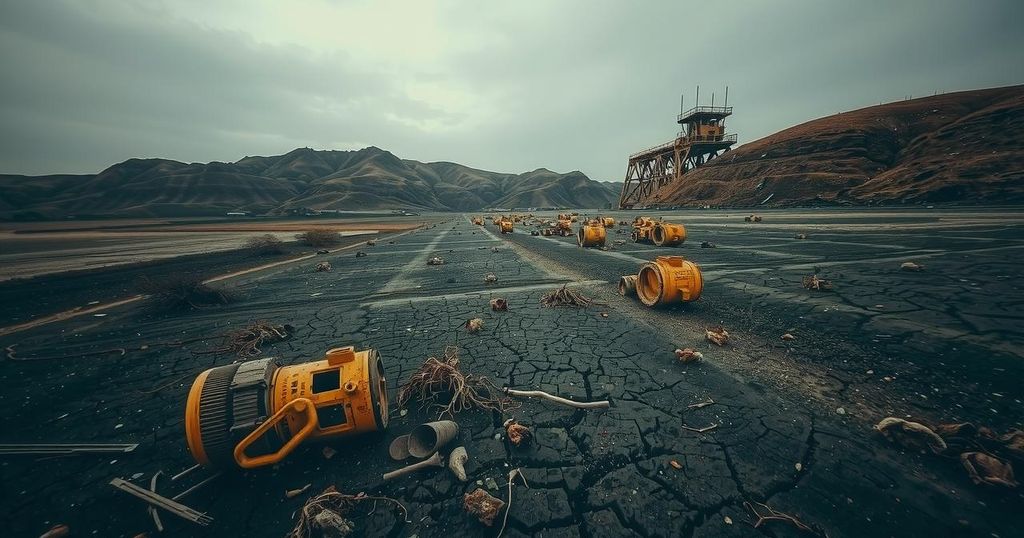A recent report reveals that human rights defenders opposing extractive industries linked to UK companies face brutal reprisals. Peace Brigades International (PBI) UK calls for mandatory due diligence laws to protect these activists and hold businesses accountable. The report highlights cases in Colombia, Honduras, Indonesia, and Mexico, indicating the dire consequences of corporate exploitation. Support for new legislation is gaining traction among companies, investors, and the public.
Human rights activists are facing severe reprisals for resisting extractive industries linked to UK corporate interests, as revealed in a new report. Peace Brigades International (PBI) UK is calling for legislation that mandates companies to conduct thorough human rights and environmental due diligence to prevent further violations. The report highlights alarming incidents from Colombia, Honduras, Indonesia, and Mexico, illustrating the dire consequences human rights defenders endure for the sake of corporate profit.
Christina Challis, advocacy manager at PBI UK, emphasizes the critical need for a mandatory due diligence law, stating that such legislation would not only compel UK businesses to prevent harm but also create accountability. This would significantly reduce the risks faced by communities who bravely stand up against corporate exploitation. Challis points out that the UK is lagging behind in this effort, and urges political action to hold corporations accountable for their impact on human rights and the environment.
The call for a new law comes as PBI UK joins forces with 39 civil society organizations advocating for corporate accountability. Countries such as France, Germany, and Norway have established mandatory due diligence laws, and the EU has approved a directive, highlighting the necessity for similar legislation in the UK. PBI UK’s proposal suggests inverting the burden of proof so that companies are liable for any harm they fail to prevent unless they can prove diligent measures were undertaken.
Among the reported cases is that of Fresnillo, a company listed on the FTSE 100, which was deemed responsible by a Mexican court for unlawfully operating a goldmine on communal land. Despite facing violence against anti-mining activists in Mexico, Fresnillo maintains that it followed legal protocols and disputes its involvement in any deaths within the community. Activist Jesús Javier Thomas states, “Profit cannot be put before life,” highlighting the moral imperative behind these calls for accountability.
Another highlighted instance involves Amerisur, a UK-listed oil company accused of colluding with guerillas in Colombia amid protests against its oil activities in the Amazon. Amerisur firmly rejects these allegations. The report indicates robust support for new legislation, with approximately 150 companies and investors, cross-party parliamentarians, and four-fifths of the British public expressing their backing in a recent YouGov poll.
The Department for Business and Trade has reiterated its stance against forced labor in supply chains, reinforcing its commitment to addressing modern slavery issues. They have tightened regulations to exclude suppliers linked to such practices from public contracts and are continuously reviewing methods to combat forced labor and environmental damage in global supply chains.
The exploitation of natural resources often leads to violent reprisals against human rights activists who oppose these practices. Reports reveal a troubling trend where extractive industries, particularly those connected to UK firms, are implicated in environmental degradation and human rights violations. Recognizing the need for corporate accountability, advocates are pushing for legislation that requires companies to rigorously evaluate their practices and ensure that they do not infringe upon human rights. This movement is gaining momentum as awareness of these issues spreads, paralleled by existing laws in other countries that hold businesses accountable for their actions.
The report from Peace Brigades International (PBI) UK underscores the urgent need for corporate accountability laws to protect human rights defenders from reprisals linked to extractive industries. Highlighting numerous cases where corporate interests have conflicted with the rights of communities, it raises an imperative for legislation that would compel UK companies to take responsibility for their human rights and environmental impacts. As public and political support for such measures grows, the pressure mounts on the UK to align with international standards of corporate accountability.
Original Source: www.theguardian.com



